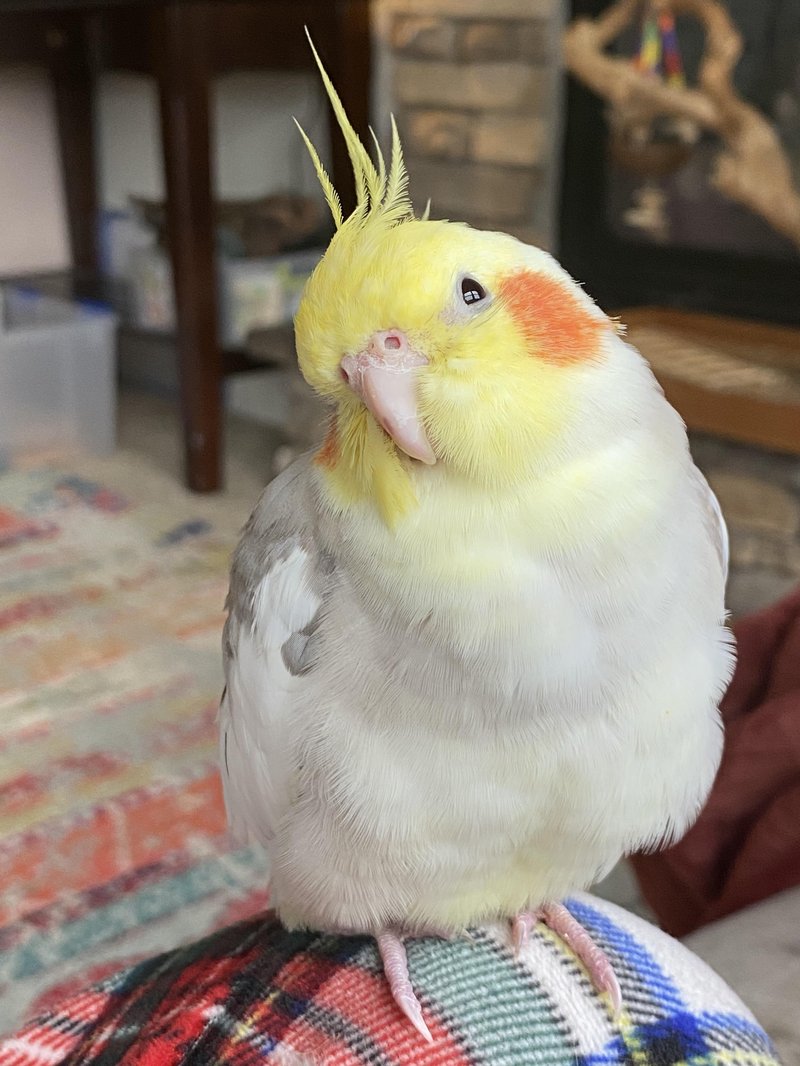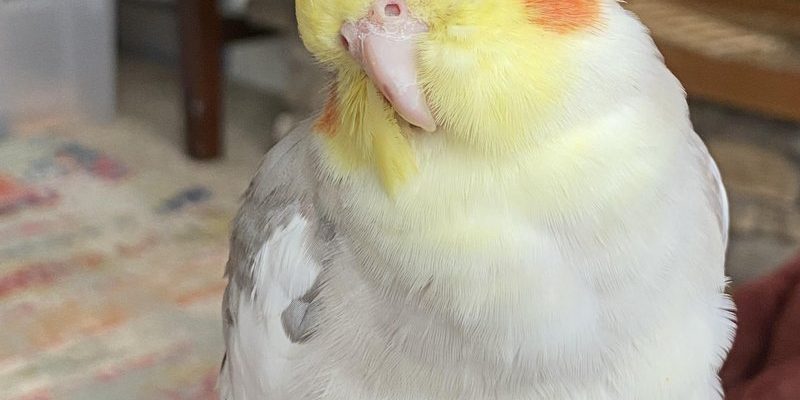
Cockatiels can be a bit like having a soft, colorful feathered companion who’s full of personality. Imagine coming home after a long day and being greeted by a cheerful chirp or a playful whistle. That’s the kind of delightful interaction a cockatiel can offer. They have this wonderful mix of being social and independent, which usually makes them a great fit for first-time pet owners—especially families with kids. But, let’s take a closer look to see if they’d really be the right match for your home.
Understanding Cockatiel Temperament
Cockatiels are known for their friendly and affectionate nature. They can be quite the social butterflies, often enjoying the company of their humans. You might be wondering, “Are they noisy?” Yes, but in a charming way! Their whistles and chatter can actually be quite melodic. If you enjoy a bit of background music in your life, you’ll probably love having a cockatiel.
These birds are also naturally curious. They love to explore their surroundings. So, if you have kids, a cockatiel can be a great pet for teaching responsibility. Children will learn how to handle an animal gently and understand the basics of animal care. However, it’s important to supervise interactions, especially with younger kids, to ensure both the bird and child feel safe.
Cockatiels can become attached to their owners, often preferring to sit on your shoulder or hang out close by. This companionship is rewarding, as it builds a bond that can bring joy to both the bird and its owner. Just think of them as a fluffy little friend that’s always ready to brighten your day!
Care Requirements for Cockatiels
Caring for a cockatiel doesn’t have to be overwhelming, but it does involve some commitment. These birds need a balanced diet, a clean living environment, and regular social interaction to thrive. You might be surprised to learn that cockatiels can live for 15 years or more with proper care! That’s a long commitment, so make sure you’re ready for it.
Their diet is particularly important. A healthy cockatiel diet typically includes a mix of high-quality pellets, fresh fruits, and veggies. Think of it like a colorful salad—a mix of seeds and nutrients that keeps them healthy and happy. You might even enjoy sharing a carrot or some leafy greens during meal prep!
Regular cleaning of their cage is another essential part of cockatiel care. Birds can be messy, so you’ll want to clean their cage at least once a week. This helps prevent any unpleasant odors and keeps your feathered friend happy. Remember, birds need a clean and safe environment just like any other pet.
The Right Cage for Your Cockatiel
Choosing the right cage is crucial for your new cockatiel. Size matters! Cockatiels need space to stretch their wings, play, and explore. A cage that’s at least 20 inches wide, 20 inches deep, and 24 inches tall is ideal. Make sure it’s designed for birds, with horizontal bars that they can climb on easily.
The location of the cage also plays a role. You’ll want to place it in a spot where your family spends time, like the living room or kitchen. This way, your cockatiel can be part of the action and enjoy social interaction. Just be cautious of placing them near windows or drafty areas, as they are sensitive to temperature changes.
Additionally, adding toys and perches to their cage can enrich their environment. Cockatiels love to play, so providing a variety of toys will help keep them entertained. Think of toys like swings, mirrors, and chewable items that can keep them busy and mentally stimulated.
Socialization and Bonding
Socializing your cockatiel is key to a happy pet. These birds thrive on interaction and will enjoy spending time with you and your family. They’re known for their playful behavior, and you might find them mimicking sounds or even trying to chat with you!
Regular handling is essential. Start by letting them get comfortable with your presence. Once they seem at ease, you can gently let them step onto your finger. It’s like building trust—slowly but surely, they’ll start seeing you as a friend. Just keep an eye on their body language. If they seem scared or stressed, give them some space to relax.
You might also want to introduce your cockatiel to different family members gradually. This helps them get used to new people and sounds. Just remember to keep interactions positive and fun, so they associate new experiences with joy!
Common Health Concerns
Just like any pet, cockatiels can face health issues. Knowing the signs of a healthy bird is crucial. Look for bright eyes, smooth feathers, and a lively demeanor. If you notice changes, like a droopy posture, loss of appetite, or unusual sounds, it’s time to consult a vet.
Regular vet check-ups are also a good idea. Many owners might be surprised to learn that birds need annual check-ups. This helps catch any potential problems early. Furthermore, providing a varied diet and a clean environment significantly reduces the chance of illness.
Before bringing a cockatiel home, consider researching avian veterinarians in your area. Having one you trust for emergencies can put your mind at ease. After all, just like with any beloved pet, ensuring their health and happiness is a top priority!
Creating a Safe Environment
Making your home safe for a cockatiel is essential. Birds are curious, and they can get into trouble if not monitored. Start by removing any toxic plants or harmful items from their reach. Some common plants, like philodendron or aloe, can be dangerous for birds, so it’s best to do a little housecleaning ahead of time.
Also, be cautious with household cleaners, candles, and cooking fumes. Anything with strong chemicals or odors can be harmful to their sensitive respiratory systems. Good ventilation is key, so always open windows or turn on a fan when you’re using strong cleaners or cooking.
When it comes to free-flying time, just making sure to supervise is vital. Birds love to fly, and allowing them out of their cage can promote happiness and exercise. However, be aware of open windows and other potential dangers. You can even provide a safe space where your bird can explore with minimal risk.
Why Cockatiels Are Ideal for Families
If you’re looking for a family pet, cockatiels can be an excellent choice. They’re social, affectionate, and gentle, making them a great fit for children. Plus, they can teach kids about responsibility, empathy, and care for a living creature.
One of the best things about cockatiels is their adaptability. They can fit into most family lifestyles. Whether your home is bustling with activity or more laid-back, a cockatiel can find its place. Plus, the joy they bring—watching them play or interact—can be a bonding experience for everyone in the household.
So, if you’re weighing your options, consider wanting a pet that’s not just cute but also offers companionship and learning experiences. Cockatiels might just be the perfect feathered friend for your family!
In conclusion, if you’re seeking a bird that’s friendly, affectionate, and relatively easy to care for, a cockatiel could be the right pet for you. With their charming personalities and love for interaction, they can bring joy to both beginners and families alike. Just keep their needs in mind, and you’ll be well on your way to enjoying a beautiful relationship with your new avian friend. Happy birdwatching!

